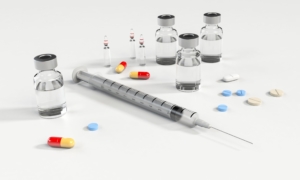People who have substance abuse disorders, as well as mental health disorders, are often diagnosed as having co-occurring disorders, sometimes called a dual diagnosis. Issues with mental health and substance use disorders often occur together. This is because:
- Certain illegal drugs can cause people with an addiction to experience one or more symptoms of a mental health problem
- Mental health problems can sometimes lead to alcohol or drug use, as some people with a mental health problem may misuse these substances as a form of self-medication
- Mental and substance use disorders share some underlying causes, including changes in brain composition, genetic vulnerabilities, and early exposure to stress or trauma
Let us then approach God’s throne of grace with confidence, so that we may receive mercy and find grace to help us in our time of need. – Hebrews 4:16
Substance Use Disorders
Substance use disorders can refer to substance use or substance dependence. Symptoms of substance use disorders may include:
Behavioral changes, such as:
- Decline in attendance and performance at work or school
- Frequently getting into trouble (fights, accidents, illegal activities)
- Using substances in physically hazardous situations such as while driving or operating a machine
- Engaging in secretive or suspicious behaviors
- Changes in appetite or sleep patterns
- Unexplained change in personality or attitude
- Sudden mood swings, irritability, or angry outbursts
- Periods of unusual hyperactivity, agitation, or giddiness
- Lacking of motivation
- Appearing fearful, anxious, or paranoid, with no reason
Physical changes, such as:
- Bloodshot eyes and abnormally sized pupils
- Sudden weight loss or weight gain
- Deterioration of physical appearance
- Unusual smells on breath, body, or clothing
- Tremors, slurred speech, or impaired coordination
Social changes, such as:
- Sudden change in friends, favorite hangouts, and hobbies
- Legal problems related to substance use
- Unexplained need for money or financial problems
- Using substances even though it causes problems in relationships
Mental Health Disorders
More than one in four adults living with serious mental health problems also has a substance use problem. Substance use problems occur more frequently with certain mental health problems, including:
- Depression
- Anxiety Disorders
- Schizophrenia
- Personality Disorders
 Some of the most common mental health disorders found in chemically dependent people include mood and anxiety disorders. An even higher percentage of people with severe mental illness also have co-occurring substance use disorders – based on the severity and length of episodes of illness, again, these mental health disorders include schizophrenia and schizoaffective disorder.
Some of the most common mental health disorders found in chemically dependent people include mood and anxiety disorders. An even higher percentage of people with severe mental illness also have co-occurring substance use disorders – based on the severity and length of episodes of illness, again, these mental health disorders include schizophrenia and schizoaffective disorder.
Mood-related disorders
- Major depression
- Dysthymia
- Bipolar disorder
Severe Mental Illness
- Schizophrenia
- Schizoaffective disorder
Anxiety-related disorders
- Post-traumatic stress disorder
- Panic disorder
- Social anxiety
- Generalized anxiety disorder
- Obsessive-compulsive disorder
How Common Are Co-occurring Disorders?
 Being diagnosed with a substance use disorder and a mental health disorder is often referred to as having a dual diagnosis. The disorders together are called dual disorders or co-occurring disorders. Co-occurring disorders are common among people seeking treatment in mental health or addiction treatment settings.
Being diagnosed with a substance use disorder and a mental health disorder is often referred to as having a dual diagnosis. The disorders together are called dual disorders or co-occurring disorders. Co-occurring disorders are common among people seeking treatment in mental health or addiction treatment settings.
Although people with this diagnosis may not have received treatment for both disorders, co-occurring disorders are, in fact, common. In a 1990 survey of over 20,000 U.S. adults, over half (53%) of those with a drug use disorder also had a co-occurring mental health disorder. A little over a third (37%) with an alcohol use disorder also had a psychiatric disorder (Regier et al. 1990).
Among people with schizophrenia or bipolar disorder, the rates of co-occurring disorders appear to be even higher. About half of people with these diagnoses also have substance use disorders. According to the 2006 National Survey of Drug Use and Health, 5.6 million people in the United States have co-occurring substance use and mental health disorders.
Causes of co-occurring disorders
There appear to be genetic risk factors for substance use and certain mental health disorders, but genes alone cannot explain all cases of these disorders. Scientists cannot fully explain why some people develop mental health disorders and others do not. One theory that has received support is the stress-vulnerability model. This model holds that both stress and biological vulnerability work together to contribute to symptoms of mental illness.
Biological vulnerability refers to a tendency to develop a condition. People are born with or acquire this sensitivity very early in life. Vulnerability also refers to what a person has been exposed to early in life, such as exposure to a virus in the womb.
Stress or environmental factors can trigger the onset of symptoms. “Stress” refers to the challenges we face in life. It is affected by our coping skills, social support, and involvement in meaningful activities.
 People with a mental health disorder may be more biologically sensitive to the effects of substances. They may also use substances to cope with symptoms or facilitate social connections. In general, people who have a mental health disorder are at a much greater risk of also having a substance abuse disorder.
People with a mental health disorder may be more biologically sensitive to the effects of substances. They may also use substances to cope with symptoms or facilitate social connections. In general, people who have a mental health disorder are at a much greater risk of also having a substance abuse disorder.
It is not known why people become addicted to a certain substance and not another. Some research indicates that access and exposure to substances may be the most important reason. That is, the substances people have access to determine the type of substance use disorder they are likely to develop.
Two Entangled Challenges
Co-occurring disorders can sometimes be difficult to diagnose. Symptoms of substance abuse or addiction can mask symptoms of mental illness, and symptoms of mental illness can be confused with symptoms of addiction. People with mental health disorders sometimes do not address their substance use because they don’t believe it is relevant to their problems.
However, some typical patterns do emerge among those with co-occurring disorders:
A worsening of mental health symptoms even while receiving treatment.
Those diagnosed with mental health disorders often use substances to feel better. People who are anxious may want something to make them feel calm; people who are depressed may want something to make them feel more animated; people who are fearful of others may want something to make them feel more relaxed and less inhibited, and people who are in psychological pain may want something to make them feel numb.
Using alcohol or other drugs not only fails to repair the mental health disorder but also prevents a person from developing effective coping skills, having satisfying relationships, and feeling comfortable with themselves. Alcohol also interferes with medications prescribed for mental health disorders. In short, drug and alcohol use makes mental health disorders worse.
Alcohol or substance use problems that seem resistant to treatment.
 People with co-occurring disorders may stop using alcohol or other drugs, but they will find difficulties as the symptoms of their mental health disorders persist. Treatment centers and clinicians and addiction specialists may not be prepared to address both conditions.
People with co-occurring disorders may stop using alcohol or other drugs, but they will find difficulties as the symptoms of their mental health disorders persist. Treatment centers and clinicians and addiction specialists may not be prepared to address both conditions.
And some traditional peer recovery groups may insist on abstinence from all drugs – even medications prescribed for mental health disorders. As a result, people with co-occurring disorders find it very difficult to treat their substance abuse problems without also treating their mental health disorders.
No temptation has overtaken you except what is common to mankind. And God is faithful; he will not let you be tempted beyond what you can bear. But when you are tempted, he will also provide a way out so that you can endure it. – 1 Corinthians 10: 13-14
Effective Treatment for Mental Health and Substance Abuse
In traditional care, mental health disorders and addiction problems are often treated separately. We now know that co-occurring mental health and substance use disorders impact one another and must be treated together. For care to be effective, both disorders must be treated at the same time, in the same place, by the same treatment team. This is called integrated treatment.
Integrated treatment can stabilize the symptoms of co-occurring disorders and provide the foundation for lasting recovery from substance use and psychiatric disorders. A variety of treatment approaches are used in treating co-occurring disorders. These include treatment for substance use and mental health disorders, client education, shared decision making between client and caregivers, peer support, training in coping skills, and recovery support.
As a Christian therapist who centers my life on Biblical principles, I help my clients build the firm foundation they need for recovery through a spiritual orientation to life, to a life centered on Christian values. Integrating this approach, while addressing the physical, emotional, and psychological aspects of each individual helps to heal the whole individual – not just the addiction – and helps each of my clients embark on a life of long-term recovery.
Photos:
“Drugs”, Courtesy of Pixabay, Pexels.com, CC0 License; “Syringe”, Courtesy of Pixabay, Pexels.com, CC0 License; “A Cord of Six Strands”, Courtesy of Pixabay, Pexels.com, CC0 License; “Today is going to be a good day!”, Courtesy of Pixabay, Pexels.com, CC0 License










